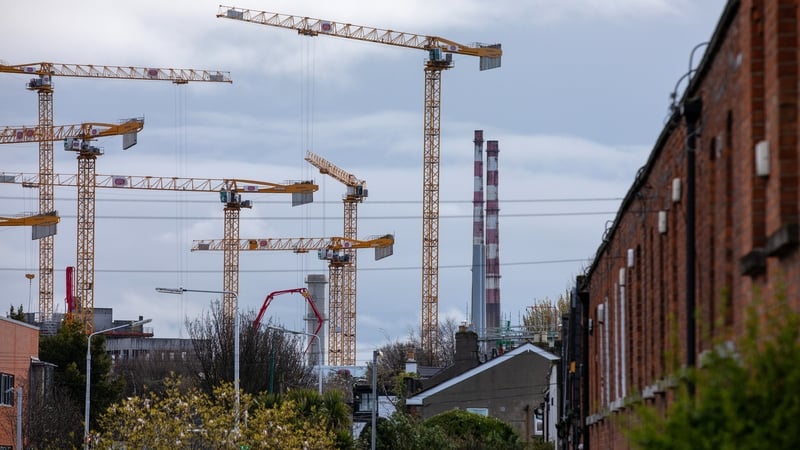The Construction Industry Federation has welcomed the revised National Development Plan monetary provisions announced today but calls for clarity on project delivery timeframes and how they will be supported by multiannual funding.
Hubert Fitzpatrick, Director General of the Construction Industry Federation, said it was disappointed that specific projects and target delivery timeframes have not yet been named and detailed.
“Delivery will depend on streamlining the entire planning and procurement processes, multiannual funding, minimising unnecessary regulatory barriers and approval processes and risks of lengthy and prolonged judicial reviews,” he said.
“The construction industry has the workforce capacity to deliver on the country’s infrastructural requirements but needs certainty of a pipeline of shovel ready projects to enable the industry to plan for the growth in infrastructural delivery required,” he said.
“Clear and committed timelines for roll out of projects are essential,” he stressed.
Chambers Ireland
Chambers Ireland has said that delivering strategic projects in energy, water, wastewater treatment and transport will be key to the success of the updated National Development Plan.
Chief executive Ian Talbot said the existing infrastructure gap must be faced urgently to avoid facing a period of managed decline.
“Our failure to deliver transformative projects is directly impacting the lives of the current generation, with consequences that cannot be delayed until the future,” he said.
“Effective delivery is non-negotiable and the real test of the revised plan will be whether it results in measurable progress,” he added.
“Looking toward 2030, it’s essential our infrastructure evolves in every region in line with population expansion and increased demands. The alternative is continued failure to meet our housing targets while infrastructural shortfalls hold back supply and constrain our competitiveness,” Mr Talbot said.
KPMG
KPMG noted that today’s €200 billion National Development Plan represents the most ambitious investment programme in the State’s history.
But its infrastructure leaders warned that rising construction costs, planning delays and labour shortages are already impeding progress on major national priorities.
“Ireland is at a crossroads,” said Paul O’Neill, Head of Strategic & Commercial Infrastructure Advisory at KPMG.
“The ambition of the plan is welcome – but ambition must now be matched by execution. Without faster progress, we risk missing critical opportunities for housing, transport, energy, and digital development,” he cautioned.
Matthew King, Head of Asset Management & Major Projects Advisory at KPMG, said that the planning system remains a major bottleneck, particularly for large-scale energy and transport projects.
“The capacity of the construction sector is also under pressure – and unless we prioritise delivery and improve coordination, projects will stall,” he added.
EY
Ferga Kane, EY Ireland Partner, Infrastructure and Real Estate Sector Lead, said the publication of the National Development Plan marks a significant moment for the delivery of infrastructure in Ireland, as we now have significant funding and policy certainty on capital investment out to 2035.
“It’s particularly welcome to see the substantial investment in both energy and water, which is crucial to underpinning wider development across housing, transport, and social infrastructure and drive economic growth,” she said.
“The focus on reforms to speed up project approval timelines, and the use of modern methods of construction to accelerate and enhance the effectiveness of infrastructure development will be key in delivering on this enhanced NDP,” she added.
daa
Kenny Jacobs, CEO of Dublin and Cork Airport operator daa described the revised plan as a “green light for growth”.
“The National Development Plan Review 2025 reinforces our ambition to invest in Dublin and Cork airports – two of Ireland’s most critical pieces of strategic infrastructure.
“The €22.33 billion allocation to the Department of Transport and the €2 billion earmarked for low-carbon transport projects such as MetroLink signal a strong commitment to enhancing national connectivity,” he added.
Mr Jacobs said they’re looking forward to seeing the full list of NDP projects.




